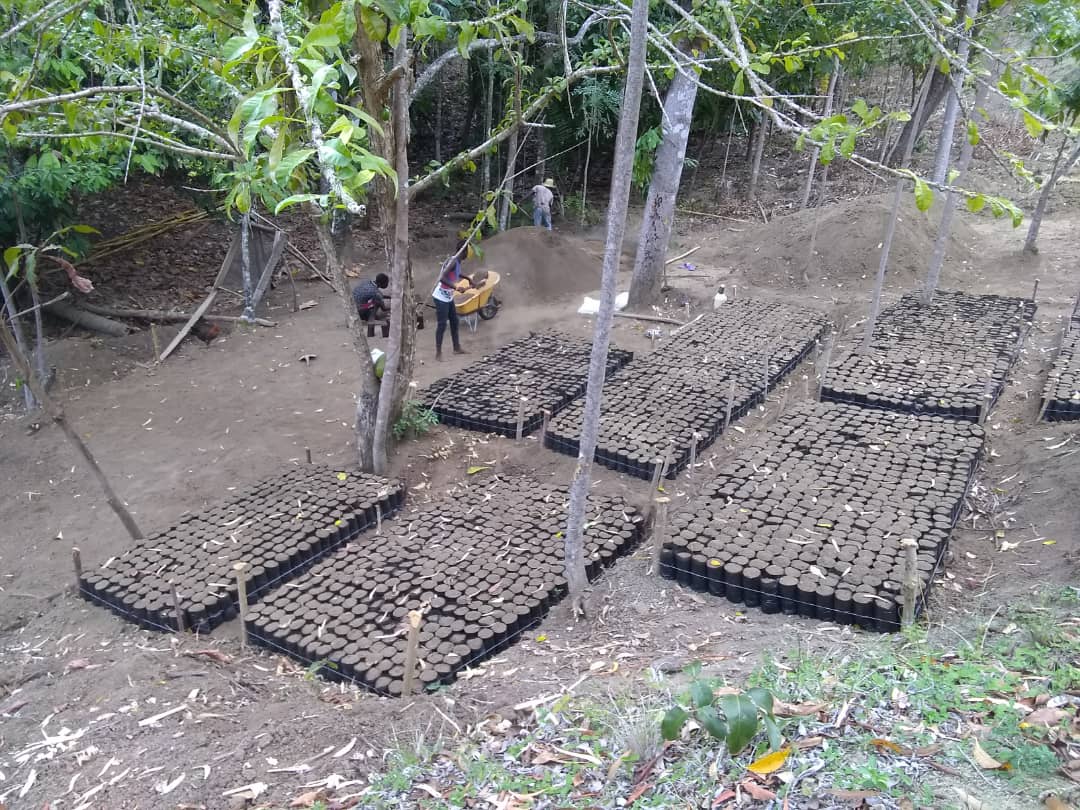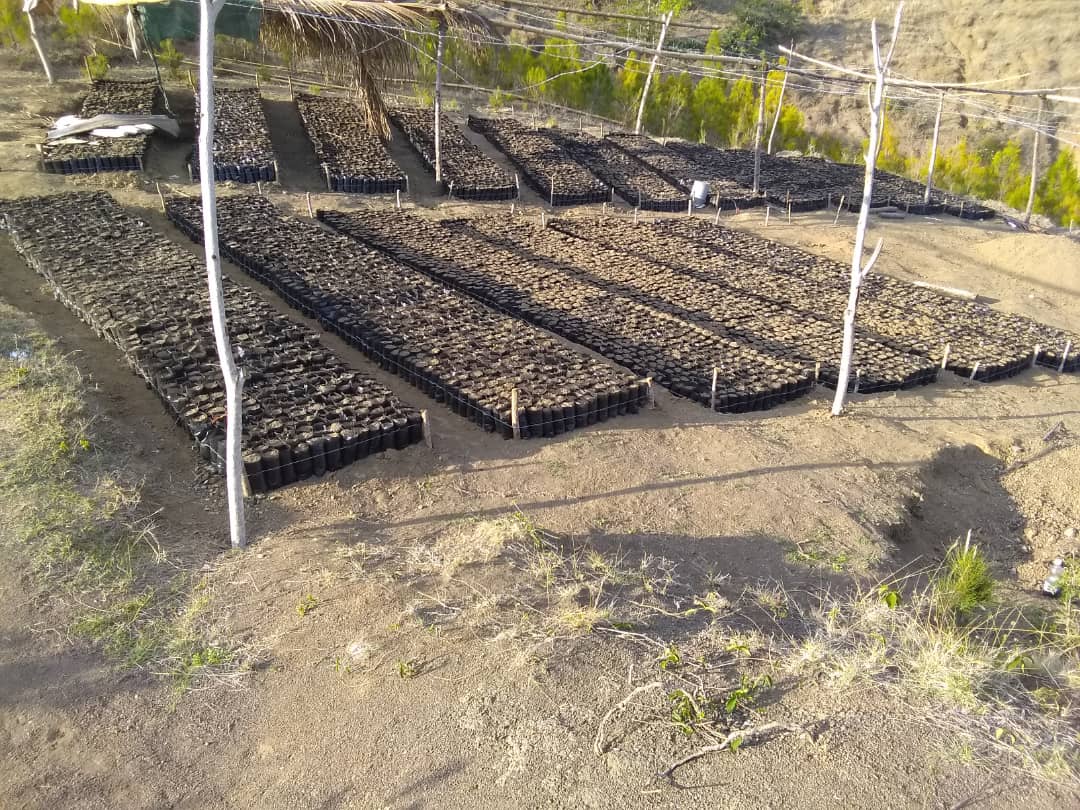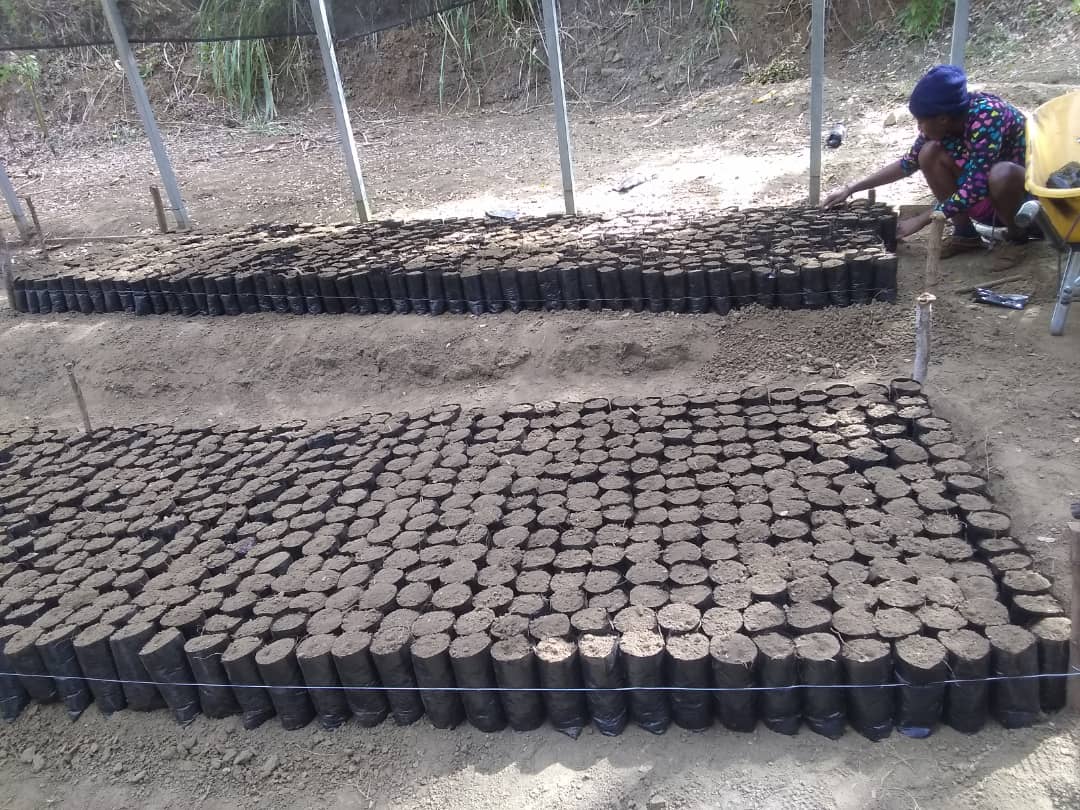From September 2018 to October 2019, a first part of this reforestation project in Haiti was financed by Reforest'Action and conducted by our technical partner OJUCAH. Following the success of this first operation, the project will resume in 2021 in a new dimension. While one of the objectives is still to develop family agroforestry around the town of Lavial, in the south of the country, the project now doubles as an ambition to also restore the forests of the region, which were heavily affected by deforestation and Hurricane Matthew in 2016. A total of 200,000 trees will be planted over the course of 2021, bringing the number of trees of various species funded via Reforest'Action in Lavial since 2018 to 400,000.

Developing agroforestry and restoring forests: a dual and complementary ambition
The second phase of the project, which will begin in early 2021, is a continuation of the first one and aims to support local communities in the establishment of sustainable agroforestry systems by planting a variety of tree species in their cultivated plots. Among them, fruit species such as mango, soursop and almond will allow farmers to produce fruit crops for their own consumption or for sale in local markets.
At the same time, the project is expanding this year to include an ecological restoration dimension: forest species such as cedar-coconut, bayahonde and oak will also be planted in deforested areas. The objective: to gradually restore the forests of the Jacmel Valley, whose massive retreat is explained in particular by the production of charcoal, which is the primary source of energy for the population, and by the passage of Hurricane Matthew in 2016, which also destroyed a huge part of the trees still standing.

First phase of the project: setting up the nurseries
Installed in the localities of Terrain Dorsainvil, Grand-Fond, Poly II and Fond-Justine, the four nurseries dedicated to the project are characterized by their proximity to the road, in order to reduce the distance over which the seedlings will be transported, as well as by the continuous availability of water resources, crucial for the good growth of the seedlings in the nurseries. During the month of February 2021, their construction, made from local materials, employed about twenty people.
At the same time, our technical partner OJUCAH has recruited eight nurserymen with solid technical knowledge to ensure their ability to anticipate and prevent climatic hazards that could affect the seedlings in the nurseries. The nurseries will be supervised by an agricultural engineer, a position newly created within the framework of the project, in particular thanks to OJUCAH's increased expertise in the development of reforestation projects.
These nurseries are already hosting seedlings of a variety of tree species, including casuarina, almond, mango, soursop and gluricidia. Once mature, the seedlings will then be transplanted to the field, within farmers' fields or deforested plots, starting in the summer of 2021.
Throughout the project, field activities will be carried out in concert with local communities in order to fully integrate them into the project and train them on the benefits of the forests. Ongoing training of beneficiary families will be deployed to introduce them to agroforestry. In parallel, in partnership with the Dutch and Haitian Red Cross, training will also be organized for the members of our partner OJUCAH on project monitoring and evaluation.

Many expected benefits for local communities
The agroforestry systems and forests restored through the project will deliver many environmental and socio-economic benefits over time:
- Planted trees will combat global warming on a global scale through carbon stored as wood. The restored forests will regulate local temperatures and generate rainfall that will benefit crops in agricultural areas of southern Haiti.
- By restoring patches of forest, the plantings will enhance the eroded biodiversity of the region. More wildlife will be able to find shelter in these ecosystems.
- The planting of agroforestry trees will protect the underlying food crops from too much sun or heavy rainfall by creating shade during the dry season and a protective canopy during the rainy season.
- The trees planted in the fields of local producers will allow them to harvest the fruits to improve their food security or obtain additional income through their sale.
- Managed sustainably by the local communities, the trees planted in agroforestry will eventually produce wood for their own use or to generate additional income through its sale.
- The local populations will be sensitized throughout the project to the protection of their environment and the maintenance of the planted trees in the long term.